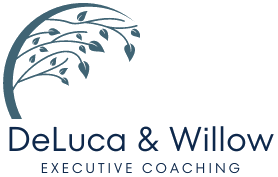I ‘heart’ affinity. What is rapport and why does it matter?
Rapport, what is it and why it matters
Most of us have experienced a work or life situation with a difficult person. Now, difficult means different things to different people, so for the sake of this week’s conversation, let’s agree that difficult means needing much effort or skill to accomplish, deal with, or understand. It’s that individual or set of individuals where work or the relationship is an honest struggle. You may not ‘get’ them and they certainly do not ‘get’ you. Let’s explore the topic of rapport and why it matters.
What is Rapport?
Researchers know that establishing and maintaining rapport is foundational unto which all interactive research is conducted; think qualitative content. In the easiest concept it is ‘like’ likes ‘like’. In other words, rapport is a harmonious relationship in which the people or groups concerned understand each other’s feelings or ideas and communicate well. Most importantly, rapport is about responsiveness. “Like” is just one vehicle to get you there. It is possible to have good rapport with someone and not actually like them, shocker! For people who are ‘wired’ and driven by results, establishing rapport seems like a waste of time and energy. This is business, not social hour, right?
Why it matters
Firstly, rapport isn’t social hour. When rapport is intentional and most importantly sincere, it can actually make business more efficient and effective; just ask any top producing salesperson in any industry. A lack of rapport is often felt like ‘resistance’. I like the saying: “Go slow to go fast”. By choosing to focus on building rapport, it can change your feelings (there is that ‘f’ word, again) about that person or group over time. Wouldn’t it be great to go from dreading a conversation to excited about it?
Quick tips for building Rapport:
- Given that most of communication (50 – 70+%) is mostly non-verbal, focus on posture, gestures, facial expression, blinking and, yes, even the breathing rhythm of the person you are engaging. Begin to mirror these non-verbals in a natural and comfortable way and just notice how the flow of the meeting changes.
- To a lesser percentage, @38% of communication is tonality. Tonality includes, tone (pitch), tempo (speed), timbre (quality) and volume. Again, notice these characteristics and begin to match tonality in a way that is most appropriate for you. Use your judgement. For example, if a person is angry and yelling, it’s probably not a great idea to match and mirror them.
- Again, being a logophile, I love words. Words account for @ 7% of communication, which sounds a bit odd, but in the order of communication effectiveness, it’s third in the order of priority. Pay attention to the words used, like predicates (the part of a sentence or clause containing a verb and stating something about the subject), key words, phrases and common experiences. Begin to use similar or the same words in the conversation and notice how the flow of the meeting changes.
As you can see, rapport is not social hour. You can practice building rapport while being social or asking about one’s weekend, but rapport is beyond the concept of social. Try one of these tips and let me know how it goes! I’d love to hear from you.
I hope you found the conversation about ‘resistance is a lack of rapport’ helpful! Adopting a learner’s mindset can alleviate many frustrations, as well as teach us some things along the way.
Are you ready?: Press HERE for Success
As adults we spend the bulk of our waking hours ‘at work’. We only have a finite amount of time on this planet, and you can choose how to spend that time. I wish you much success on your career quest. Yours in balance, learning, growth and harmony. – Melissa DeLuca, CEO



